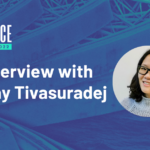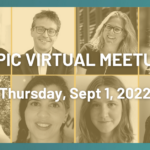
By MARIA CURY, MIKKEL KRENCHEL and MILLIE P. ARORA, ReD Associates
To influence the development of artificial intelligence, ethnographers must build more partnerships and new kinds of outputs.
Artificial intelligence (AI) has made huge strides recently in areas like natural language processing and computer-generated images – every other week seems to bring another breathtaking headline. Engineers, developers, and policymakers in the AI community are more seriously grappling with the fundamental risks that AI poses to society, like perpetuating unfair biases, putting privacy and security at risk, harming mental health, or automating tasks that provide livelihoods for people. As people flock to the fields of 'responsible AI,’ ‘AI ethics,’ and ‘AI governance’ that are all about shaping AI towards what is helpful for humanity, it is time we ask: where are the ethnographers and applied anthropologists?
Many are doing ground-breaking work in AI, and reporting back to the EPIC community (see here, here, here, also here for just...















